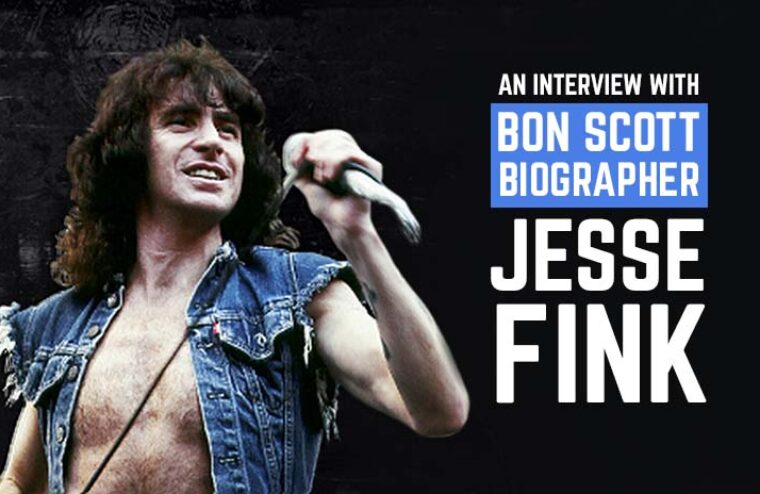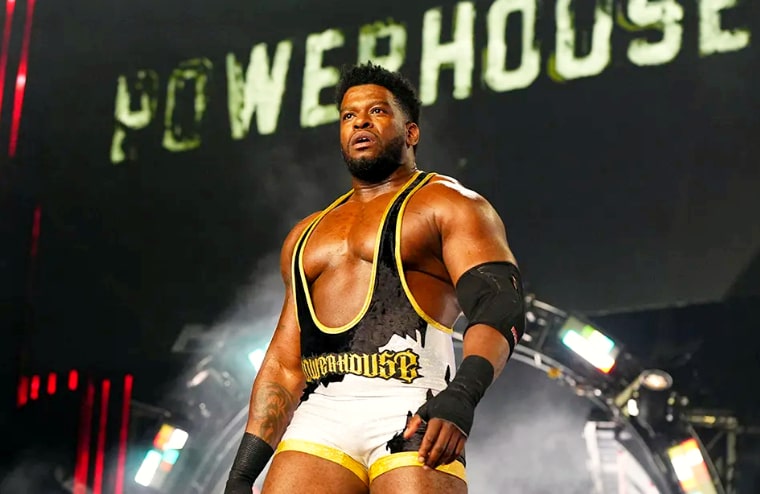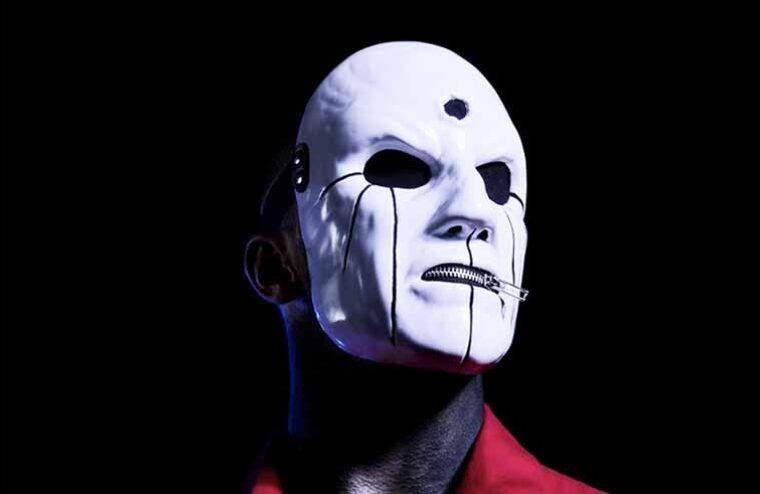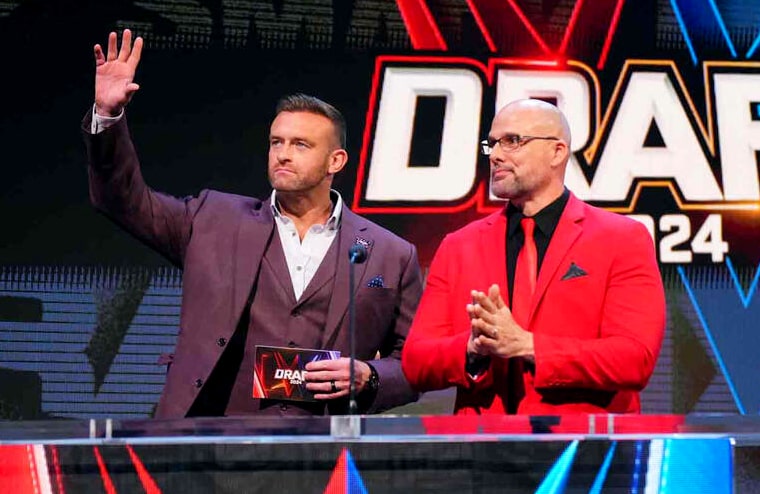In 2017, author Jesse Fink released the most comprehensive book ever written on late AC/DC singer Bon Scott. That he died of a heroin overdose was among several startling new revelations regarding the singer’s untimely passing uncovered in Fink’s book, “Bon: The Last Highway.” An exhaustive view into the days leading up to his demise, Fink said the book took four years to write and was compiled from hundreds of interviews of those in Scott’s social circle and personal and professional life. The tome recently was updated and re-released via ECW Press.
Coincidentally while speaking to Fink, a celebration of Scott was taking place at the annual, multi-day Bonfest in Kirriemuir, which ironically takes place in Angus, Scotland. The 3-day event is billed as an “international Bon Scott rock festival,” and to many in attendance, Fink is “public enemy No. 1.” The author revealed he’s received death threats for uncovering uncomfortable truths about the singer’s final days and for speculating his involvement with AC/DC’s multi-platinum opus, “Back In Black.”
“I’m sure they have piñata’s of me that they’re bashing,” Fink said. “Thousands of people turn up to celebrate the life of a guy that didn’t spend a lot of time in Scotland — who is actually Australian — let’s get that straight. I find this whole thing of Scotland claiming Bon Scott sort of amusing, because he was Australian to his core. He’s the apotheosis of rugged Australian masculinity — kind of a carefree lifestyle, a don’t-give-a-f*ck attitude, the rock ’n’ roll spirit. He embodies all that to a lot of people. So he’s sort of become a figure of how people idealize themselves or how they want to be.”
The reality, however, is far more complex. “It’s far more human than a lot of people want to accept,” Fink continued. “That’s part of the reason there was such a harsh reaction from quarters of the AC/DC community when the book came out. You’ve got to remember, I had death threats. I had people sending me photos of them burning the book or the book in the toilet. All sorts of stuff. In a way, it was distressing for me. It’s distressing for f*cking anyone to get a death threat over a book. But, in a way it kind of aided the sales. When people were saying, ‘Why is this book causing so much of a stink?’ It encouraged people to go out and buy it. So thank you very much for the publicity.”
Fink is as much of a Bon Scott fan, and arguably more, than anyone on the planet. Anyone who devotes multiple years of their life researching and writing about a subject certainly has to have affection for what they’re compiling. He understands people wanting to celebrate the musical legacy of one of rock’s greatest frontmen, but to Fink, discounting the real person behind the icon does a disservice to his memory.
“I just think the real man has kind of been forgotten in it all,” Fink said. “And there’s sort of this mass attachment to a myth. I’ve never had any cordial relations with the people from Bonfest. They think I’m the worst person on earth, which is very odd being a Bon Scott biographer. They just don’t want to know, or they don’t want to talk about it. I think that’s to the great detriment of that festival, so I don’t have any time for it. I’m more interested in who the guy was than sort of attaching yourself to a cartoon, which is pretty much what is going on.”
Fink, who also wrote the 2014 AC/DC biography, “The Youngs: The Brothers Who Built AC/DC,” has been no stranger to backlash from certain quarters of AC/DC fans. His first book on the band was a critical appreciation of how band co-founders Angus and Malcolm Young were sometimes ruthless in their pursuit of widespread success. Fink said that given the time he’s already devoted, he’s likely finished writing about AC/DC. In addition to making the rounds to promote the re-release of “Bon: The Last Highway,” Fink has been plenty busy promoting his true crime book, “Pure Narco,” the life story of Cuban-American cocaine trafficker Luis Navia and his dramatic arrest in Venezuela by agents of the DEA and United States Customs Service. A writer of multiple tomes, he’s currently working on his sixth book, another non-fiction biography, and he talked all things Bon recently in this Web Is Jericho exclusive.
Since we last spoke in depth about “Bon: The Last Highway,” what new revelations have been added to the updated version? “The interesting thing was that after the initial edition came out, people wrote to me and said either, ‘I met Bon in the 1970s,’ or ‘I knew people that you mentioned in the book,’ or ‘These are my theories of what happened.’ They were very interesting, and they kind of opened my eyes up to a few new things. The most interesting thing I think in the original book was when I spoke to Zena Kakoulli (the wife of The Only Ones singer, Peter Perrett, and manager of Lonesome No More, a band Bon Scott watched at Camden’s Music Machine on the final night of his life), who admitted she was with Bon and (Bon’s friend) Alistair Kinnear the night Bon died. That was obviously a very new part of the story. What was interesting, this French man Patrick Beaumont started emailing me sort of these long, striking letters, often in caps. But as I read through his emails, he was sending me some very interesting things, which were PDFs of French articles I’d never seen. He sent me articles about where Bon had been talking to a French journalist and had talked about quitting the band and wanting to leave. Which is a big thing in the original book, so it was great to get it out of Bon’s own mouth. He also sent me an article from 2009, where Peter Perrett, who was the husband of Zena Kakoulli, said he was also there the night Bon died. When I spoke to Zena the first time around, she said it was only the 3 of them. Now you have Peter Perrett saying he was there as well. It sort of puts a spin on the whole story of, ‘We couldn’t get Bon up to the flat from the car.’ If there were that many people, why couldn’t you do it? It allows sort of a different interpretation of events around that final night. Patrick sort of ended up emailing me over a period of years, coming up with his own scenarios, and I include one of his theories in the introduction to the book, which I think kind of nails it in a way. Anyone who is particularly interested in how Bon died and what actually went on that night, will find new things.”
What trait do you think you and Bon have most in common? “I can actually sort of identify in some ways with how he led his life towards the end. I’ve never been into drugs, but I was into womanizing at a point in my life after I broke up with my first wife. I went through a stage where I was just not attached to one particular person and very much wanted to be, and sort of found myself in this very lost and sort of depressing kind of lifestyle where you’re with a different woman every week or whatever. On the outside, it can appear to be a lot of fun, but inside you’re pretty lost and sad. I think Bon had an element of that. As (UFO bassist) Pete Way said to me, ‘Bon had a woman in every port.’ It can be fun, but it doesn’t allow you to form any kind of real emotional attachments. It doesn’t allow you to form any intimacy with anyone. As a single man coming closer to retirement age, there are more important things in life than chasing skirt and getting drunk. I think Bon was kind of lost in that for a long time. I think maybe for a few years in my ’30s, I was a bit lost, too.”
What to you was the strongest evidence that Bon contributed to Back in Black? “There was the admission from one of the brothers to Vince Lovegrove back in 2005 that the family received royalties for ‘Back In Black.’ They always say, ‘Follow the money,’ For me, I think it was not only (Bon’s ex-girlfriend) Silver Smith saying she’d seen one of Bon’s lines for ‘You Shook Me All Night Long’ in one of his letters,’ but also getting to spend time with (another of Bon’s companions) Holly X in Miami, and her telling me the backstory to her relationship with Bon. Suddenly, some of the songs on ‘Back In Black” kind of made sense to me. A song like ‘You Shook Me All Night Long’, were it about Holly X, which I strongly believe it is, it all makes sense. Whereas all the other stories about how those songs came to be written as told by Brian Johnson and the Youngs have never sort of struck me as believable.”
“I got a chance to spend time with her and hearing everything she told me and seeing who she was and imagining who she was at 19 years old when she was with Bon, I could see American thighs right in front of me. And the thing is all of Bon’s songs from the ’70s, he was writing about his life and the women in his life. ‘Powerage’ is all about Silver Smith. I think ‘Highway to Hell’ and ‘Back in Black’ were about the women he was involved with at the end of his life, and I got to meet three of them. Pattee Bishop and Holly X in Miami were two hot blondes, and I reckon a lot of the songs on ‘Highway to Hell’ and certainly’ You Shook Me All Night Long’ are about Bon’s girlfriends. However, that’s not proof of anything, and I’ve never claimed that I had 100% proof. It’s just an idea, and it seems to have caught on with a lot of fans. If I’d been talking about this with you five years ago about the things that were in the book, I don’t think a lot of those things had been accepted yet. But for instance, the Bon Scott Forum on Facebook, we did a poll ‘How do you think Bon Scott died?’ Did he die of heroin and alcohol, did he die of an alcohol poisoning incident, or was it something else? 90% of the people said heroin and alcohol, and you wouldn’t have had that result five years ago.”
If Bon doesn’t die that day and ends up recording the next record, where do you think he’s at mentally in the next few years? It seems like the album would’ve been a smash regardless, because the band was sort of poised for that. But he was burning the candle at both ends that last year of his life and talked about needing a break and talked about doing a Southern rock project, according to (original AC/DC bassist) Mark Evans. What would’ve happened the next few years had he not died when he did? “I came up with this French language interview that said he wanted to go fishing, which I’d never heard before. I think he was obviously at a place in his life where he wanted to deal with his addictions. The drinking and drugging had a very deleterious effect on his health, and you can see it writ large in photos from that period. If you compare photos from ’79 to ’78, you can see the deterioration. He probably wanted a reset of sorts. He probably wanted to get back to what he really loved doing, and that was changing himself. You’ve got to remember, Bon was a bit of a chameleon. He was a hippie before joined AC/DC, and he was totally into that scene. And before that, he was in a bubblegum pop band. He had that capacity for reinventing himself, so I think he probably would’ve left AC/DC, taken the money from ‘Highway to Hell’ and ‘Back In Black,’ and gone and done a solo record very possible with some Southern rock musicians. I think he would’ve probably been a bit of a hit in the MTV era. I can see him as sort of a David Lee Roth-style personality, doing ‘California Girls’ style videos, and maybe some ballads. Who knows? It would’ve been different. He was an interesting intellectual guy who had a rock persona. And we’re all kind of locked into this rock persona as being a true representation of who he was. But I think deep down, he was a very different kind of person. I think that’s what people take away from ‘Bon: The Last Highway,’ is how different he was in real life to the person he presented himself to be on stage.”
What did you find most unique about Bon outside of his rock persona? “I remember hanging out with Mark Evans years ago. I remember him telling me how he hated Steely Dan, and Steely Dan has kind of held up as a nerd’s band. It’s not very cool to like Steely Dan in certain quarters. Finding out from Silver Smith that Steely Dan was Bon’s favorite band was very pleasing, because Steely Dan is one of my favorite bands, but it’s not something you tend to go and admit in a hard rock crowd. They want to talk about Black Sabbath and Metallica, and I’ve never really been into that. I’m definitely more into melodic AOR. The Totos and the Steely Dans and The Doobie Brothers. That’s my first love really with music. I guess I felt a bit of an affinity for Bon after learning that. And learning that he read and was trying to educate himself, he was more humanized.”
What do you think Bon would think of the book? Would he be flattered? Would he be upset that you uncovered certain aspects of his life? “I’m a stickler for facts and getting things right. I would be concerned that I had got something wrong, and undoubtedly, I probably would. And that would cause me great distress. I think overall he would be appreciative of what I had set out to do and the respect that I have given him as a human being by trying to write this book. At it’s core, it’s about the real Bon Scott. It’s not about rehashing the drinking anecdotes and the shagging anecdotes, and that sort of stuff which you can get anywhere. It was about what was going on in his private moments. What he was thinking about, what his aspirations were. What his demons were. All the things that make us the complex, fascinating people we are. Rather than the people that we present ourselves to be, for instance through social media. I put a photo of myself up on social media once every few months. There he is. What do you get? It’s just an image. You don’t know the real me. You don’t know what I’m going through every day. It’s the same with this book. It was an attempt by me to draw out the real Bon Scott. The heartening thing for me is I’m getting a lot of positive responses now. It’s done really well. It’s the highest-selling Bon biography anywhere in the world. I think people regard it as the definitive Bon Scott biography, even though it didn’t set out to tackle his early years. I look at it, and I think I’ve done everything I could do. Now I think the great unanswered question with this story is, ‘Who gave Bon the heroin that killed him?’ But do people want to know? Do people care? I do.”
You said before you doubt you would ever do another AC/DC book. Would you ever reconsider perhaps covering Bon’s earlier years both in and out of music? “I think there would still be interest in another Bon Scott book. I was going through stuff that didn’t even make it into the book. I had over 100 pages of material that never made it into ‘Bon: The Last Highway.’ I put a few things up on my blog. Recently I did a story about ‘Whole Lotta Rosie,’ the real person of who the song is about. I came into this information about who she was and then a guy called Dean Goodman, who was actually writing a biography of (Lynyrd Skynyrd’s) Artemus Pyle, which got pulled, he saw the story and took the information I got from that and found her death certificate. So we have confirmation who she was, where she lived and how old she was, and it was a pretty bloody tragic story. I’m not sure everyone who listens to ‘Whole Lotta Rosie’ at a bar in Indiana or Youngstown, Ohio, is gonna care about the real backstory of ‘Whole Lotta Rosie.’ But for anyone who is fascinated with the micro-history of AC/DC, it was a real good story to tell. In a way, I regard myself as a bit of an AC/DC historian. I like it when people contact me and they add new little bits to the story and it eventually gets told.”
“We started the Bon Scott Forum on Facebook after the book came out, because no one would even talk about the book on other Facebook groups. It was banned. So we started this forum, and it’s now got 15,000 members. We get people posting new stories every day. They’re adding to this field of knowledge about this person we love and admire. I still love Bon Scott. AC/DC, I listen to it all the time, but it pretty much stops after ‘Back In Black.”
To order the revised version of “Bon: The Last Highway,” visit ECW Press.
- Iron Maiden Is Allegedly Suing Rapper - May 3, 2024
- Dave Grohl Makes On Stage Dedication To Dimebag Darrell - May 3, 2024
- “Seinfeld” Might Not Have Happened Without Wrestling - May 3, 2024




